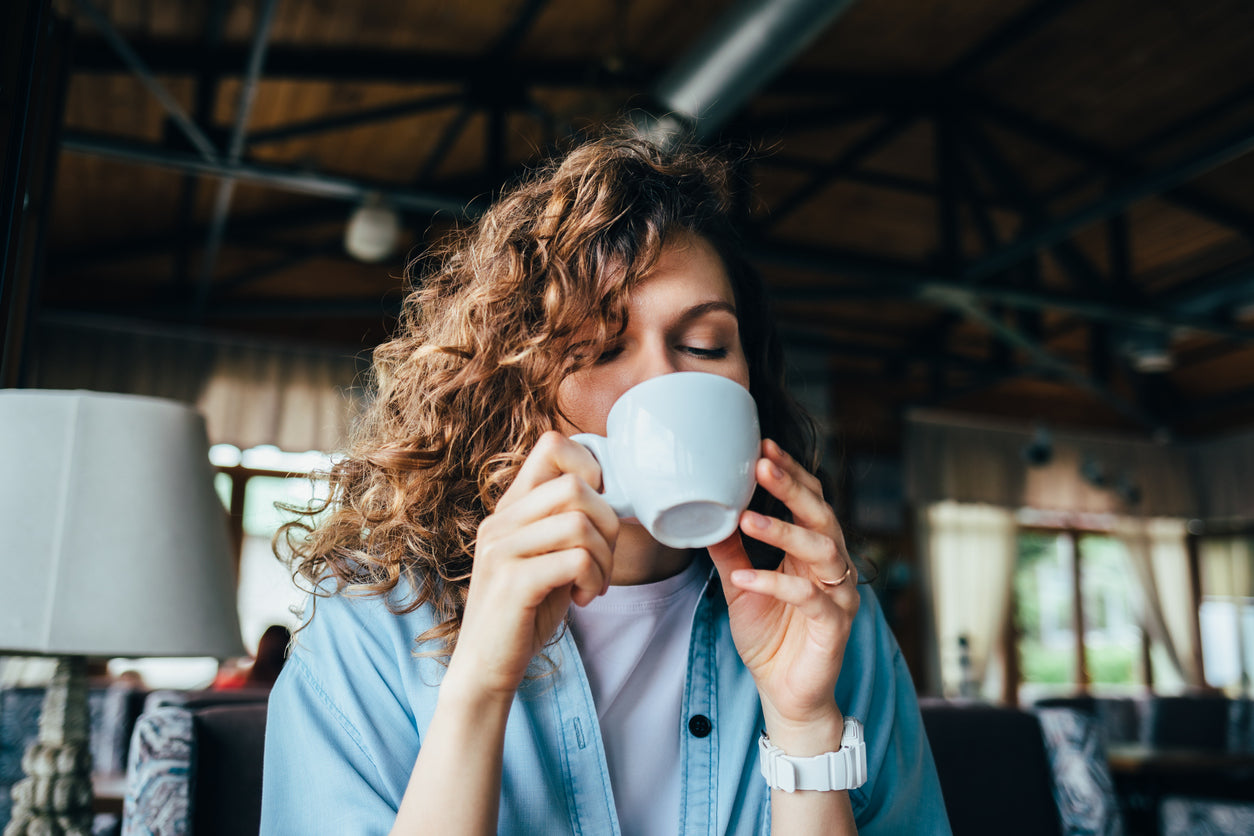Is Your Coffee Dehydrating You?

Statista Global Consumer Survey states that coffee is America’s favorite and most consumed beverage. For coffee lovers, they drink it because they love the flavors, but we’re sure there’s a huge part that has to do with the caffeine.
Caffeine is a psychoactive substance that helps us stay awake and can aid performance. However, can caffeine be dehydrating, so is this highly popular drink causing us to be thirsty and dehydrated? Let’s talk about that!
Caffeine & Dehydration
Caffeine is the pot of gold at the end of most coffee drinkers’ rainbow. It is the most consumed psychoactive substance in the world. It can help boost our mood and elevate our physical and mental performance.
While caffeine is mainly known for its positive effects on the brain, research shows that it can have a diuretic effect on our kidneys, especially in high doses. Diuretics can cause our body to create more urine. Caffeine increases the blood flow to our kidneys, causing them to release more water through urine. The more frequent urination elevates our need for hydration.
Caffeine Content In Coffee
The caffeine content varies between the type of coffee brewed. The same goes for any caffeinated beverages; you may have noticed some sodas have different levels of caffeine. As a result, your coffee may contain more caffeine than others, which could affect your hydration status differently.
Regular Brewed Coffee
Brewed or traditional drip coffee is the most commonly made in American households. For those who may not know, it’s made by pouring boiling or hot water over ground coffee. Typically, it’s done using a filter, percolator, or French press.
An 8-ounce (240 ml) cup of drip coffee contains about 70-140 mg of caffeine, or about 95 mg on average.
Instant Coffee
Instant coffee is made using freeze-dried or spray-dried beans. All that’s needed to make a cup of instant coffee is a mug of hot water and a teaspoon or two of coffee.
Instant coffee contains less caffeine than regular brewed coffee. An 8-ounce cup of instant Joe has around 30-90 mg of caffeine.
Espresso
Espresso is often made and drank in smaller volumes because one espresso shot contains about 63 mg of caffeine. One espresso shot is between 1 - 1.75 ounces (30-50 ml), based on information from consumer reports.
An ounce of regular brewed coffee contains between 12 and 16 mg of caffeine, but a regular-sized cup of home brew is at least 8 ounces. In the end, a regular brew averages 95 mg per cup.
Decaf
Decaf or decaffeinated coffee isn’t completely free of caffeine. However, it’s made using beans with at least 97 percent of the caffeine stripped or removed.
That being said, an 8-ounce (240 ml) cup of decaf coffee contains between 0 and 7 mg of caffeine, averaging around 3 mg.
Coffee Is Unlikely of Causing You To Be Dehydrated
While the caffeine in coffee can have diuretic effects, it is unlikely to cause dehydration. In order for caffeine to have significant diuretic effects, studies show we’d need to consume over 500 mg a day - or the equivalent of 5 cups (40 ounces) of brewed coffee.
That being said, drinking moderate amounts of coffee should not cause dehydration. However, suppose you’re drinking large amounts of caffeine, 5 or more cups in short amounts of time. In that case, you may experience minor dehydrating effects.
Enjoy your favorite daily brew. You’ll likely not be dehydrated as long as you enjoy your coffee in moderation. However, if you experience dehydration ~ feeling excessively thirsty, dark yellow and strong-smelling urine, lightheaded or dizzy, tired, weak, dry mouth, dry lips, dry eyes - speak to a doctor; there might be something else going on.


